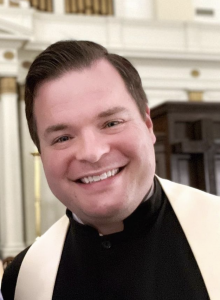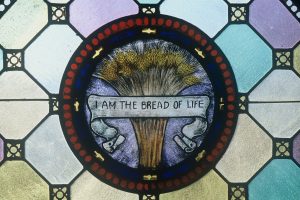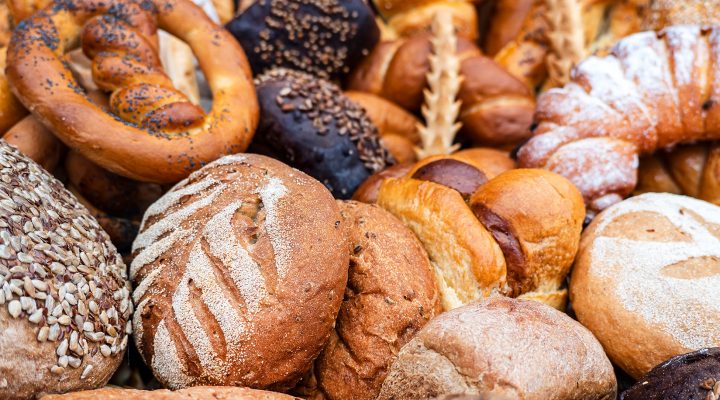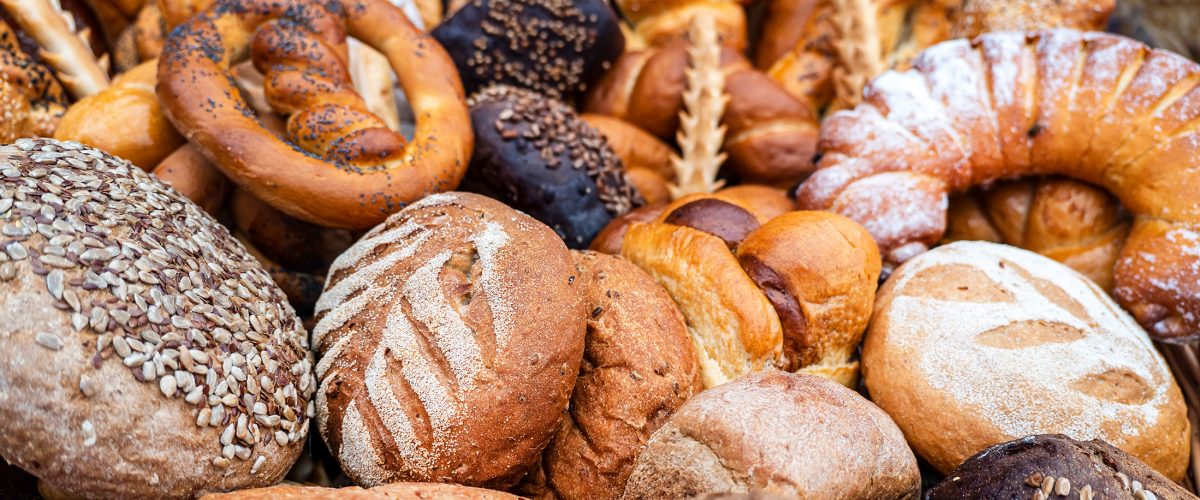Most liturgical churches have been living into the bread imagery of the Gospel of John for the past several weeks. One of the worship planning resources I use has nicknamed this portion of the Lectionary “high-carb season,” which I thought was most apropos.
At first, this bread theme (which comes around every three years) was viewed as a fun and creative challenge. However, as the Sundays have dragged on, my preaching colleagues tell me they are struggling to find new things to say, and I will fully admit I have used most of the familiar “bread songs” in my repertoire.
That leaves us, once again, asking ourselves what all this bread stuff is actually about.

Justin Addington
Bread is a staple on most tables and long has been viewed as an essential source of nutrition. Bread provided sustenance for the children of Israel in the desert, historically it has been a part of the standard diet of prisoners, and it continues to be at the heart of our celebration and remembrance of the Last Supper.
In recent years, however, health gurus have begun telling us bread might not be all that good for us, making the theological connection between this common food item and the life and work of Jesus harder for modern-day churchgoers to swallow (pun intended). Nevertheless, breaking bread is central to our faith story, and is an important part of how we interact with one another today — even if that bread is not always made available to everyone — both literally and spiritually.
I once served a church that went through a discernment process regarding the sacrament of holy Communion. Wine versus grape juice was discussed, of course, but most of our conversation focused on bread. The practice of using gluten-free bread for Communion was just making its way into the understanding of the Christian church, and our leadership wanted to be sensitive to the needs of our people.
We toyed with the idea of having a special gluten-free Communion station in worship but soon realized that would have immediately divided people, as if to say the real Jesus is reserved for us and the “fake Jesus” is over there for you. After much deliberation, it was decided we would switch to using all gluten-free bread for Communion.
This action made the body of Christ accessible to and safe for everyone. There was beauty in the theology of the decision, and it was one we all felt very good about — until the bill arrived. You see, we had neglected to take into account how expensive gluten-free food items were.
At the next Worship Committee meeting, there was another lengthy discussion, one aimed at saving money and trying to come up with a better solution. The conversation got rather heated, with some members wanting to just forget the whole idea and go back to using regular bread.
In the midst of the debate, a quiet and godly senior member of the committee spoke up and asked why we were surprised. The room fell silent. She went on to say it should always cost us something when we make Jesus known to others and pointed out that this situation should be no different.
She was right. Jesus never said the work of discipleship would be easy, and he definitely never said the work of the kingdom in this world would cost us nothing. As a matter of fact, Jesus called us to sacrifice our time, our resources and even our convenience for the sake of the world he came to save.
 Members of our committee left that meeting feeling inspired and were reminded that our stewardship of even the simplest things could be used to show God’s love to others. (We voted to stick with using all gluten-free bread, by the way.)
Members of our committee left that meeting feeling inspired and were reminded that our stewardship of even the simplest things could be used to show God’s love to others. (We voted to stick with using all gluten-free bread, by the way.)
In recent years, certain sects of Christianity have forgotten the sacrificial invitation of Christ, turning the open table of our Lord into an exclusive club for like-minded individuals. Rather than working to find compromises and common ground, some seem determined to further divide people of faith along denominational and political lines. This is wrong, and completelymcounterproductive to the message of the gospel.
God’s world is wonderfully complex, and when we try to separate people and ideals into dichotomies of our own creation, we severely limit the power of God and the work of the body of Christ. Christians used to be taught it was our duty to wage spiritual warfare on any part of the world viewed as different or that could possibly threaten our safe and privileged way of life. But we have come to realize we can do more good for the world simply by making Christ known through our words and actions, through the ways in which we help others (especially the poor and marginalized), and by how we care for God’s creation.
On World Communion Sunday, our congregation often places several loaves of bread on the Communion table, representing various countries and traditions from around the world. It is a beautiful visualization of what the body of Christ is and should be — a diverse mixture of people, maybe not all believing the same thing, but united by a common love for God and a desire for peace and goodwill to abound throughout the earth.
Sharing in the life-giving Bread of the World requires an understanding that God’s love is all encompassing, reaching people and places that may surprise us. And in today’s highly charged political environment, we must pair that understanding with the costly work of self-examination, critical thinking, open-mindedness and humility, if we ever want to be the hosts Christ expects us to be.
Our Lord’s Table is so much bigger than any of us can imagine, and as Shirley Murray’s great hymn reminds us, we are called to prepare a place at that table for everyone — no matter the cost.
I don’t know about you, but I am eager to dine at such a table, and I sure hope someone is saving me a seat.
Justin L. Addington serves as associate minister for music and worship at the historic First Baptist Church of Savannah, Ga. He holds a bachelor of arts degree in music education, a master of church music degree in choral conducting and a doctor of theology degree in worship studies. Learn more at www.justinladdington.com.


